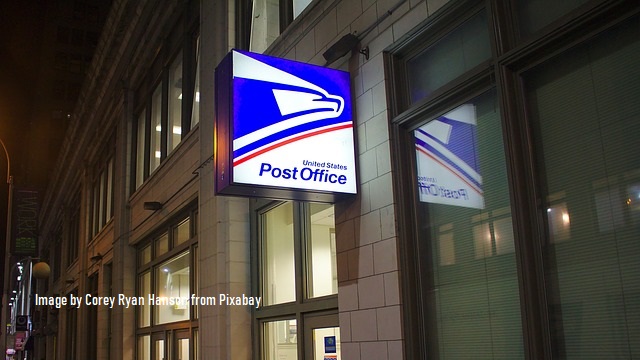Why is the Dems’ Progressive Caucus obsessed with protecting the Post Office?

“The USPS is bleeding red ink and the company’s finances will likely get worse. The Trump administration is correct that ‘USPS’s current model is unsustainable’.” – Chris Edwards, DownSizingGovernment.org
I receive, on a weekly basis, at least one fundraising email from the Progressive Caucus outraged that there are efforts to reign in the spending by the United States Postal Service (USPS). The Progressive Caucus is obsessed about the destruction of “yet another vital public service.” But there are other companies that provide mail delivery services that make the USPS look archaic. Yes, there are. Among them are: Amazon, E Bay, FedEx and UPS.
QUESTION: Would not competition improve this vital service?
Is USPS a Disaster?
In a July 9, 2029 DownSizingGovernment.org column title Privatizing the U.S. Postal Service Chris Edwards wrote:
The U.S. Postal Service (USPS) is a large business enterprise operated by the federal government. It has more than 600,000 employees and more than $70 billion in annual revenues. Revenues are supposed to cover the postal service’s costs, but mail volume is plunging, and the USPS has been losing billions of dollars a year for more than a decade.
The USPS has a legal monopoly over letters and mailboxes. That policy is an anomaly because the federal government’s general economic stance is to encourage open competition in markets. The USPS monopoly means that entrepreneurs are prevented from entering postal markets to try and improve quality and reduce costs for consumers. [Emphasis added]
USPS’s Predicament
Edwards points out the following about USPS:
Congress confers on the USPS monopolies over the delivery of first-class mail and access to mailboxes, the latter of which is a unique protection among the world’s postal systems.
The USPS also enjoys a range of other benefits:1
- It can borrow up to $15 billion from the U.S. Treasury at low interest rates.
- It is exempt from state and local sales, income, and property taxes, and from parking tickets, vehicle fees, and other charges.
- It pays federal corporate income taxes on its earnings from competitive products, but those taxes are circulated back to the USPS.2
- It is not bound by local zoning laws, is immune from a range of civil actions, and has the power of eminent domain.
- It has government regulatory power, which it can use to impede competitors.
On the other hand, Congress ties the hands of the USPS in many ways that prevent it from operating like a private enterprise. Congress restricts the USPS’s pricing flexibility, requires it to provide expansive employee benefits, imposes collective bargaining, and prevents it from cutting costs in various ways, such as by reducing delivery frequency and closing low-volume post offices.
Incremental Reforms
Edwards in his column recommends the following reforms of the USPS:
- Close Post Office Locations.
- Cut Labor Costs.
- End Collective Bargaining.
- Narrow the Universal Service Obligation (USO).
- End Cross Subsidies.
Conclusions
The [Trump] administration’s Task Force found that the USPS’s current business model “is unsustainable and must be fundamentally changed if the USPS is to avoid a financial collapse and a taxpayer-funded bailout.”61 The GAO said that a “comprehensive package of actions is needed to improve USPS’s financial viability.”62 That comprehensive package should be privatizing the USPS and opening U.S. postal markets to competition.
As Barry Goldwater wrote in his book “The Conscience of a Conservative“:
“I have little interest in streamlining government or in making it more efficient, for I mean to reduce its size. I do not undertake to promote welfare, for I propose to extend freedom. My aim is not to pass laws, but to repeal them. It is not to inaugurate new programs, but to cancel old ones that do violence to the Constitution, or that have failed their purpose, or that impose on the people an unwarranted financial burden. I will not attempt to discover whether legislation is “needed” before I have first determined whether it is constitutionally permissible. And if I should later be attacked for neglecting my constituents’ “interests,” I shall reply that I was informed that their main interest is liberty and that in that cause I am doing the very best I can.”
Perhaps it it time to reduce the size of government starting with the USPS?


They tried to close a post office…a very small one….only about 3 blocks from a larger one on Laurel in Nokomis a few years ago…….the outcry was huge so they of course failed to close it and sell it. It was eye-opening they wouldn’t move forward and eliminate this tiny place with little parking because of course the neighbors wanted it. Another example of why the USPS fails!